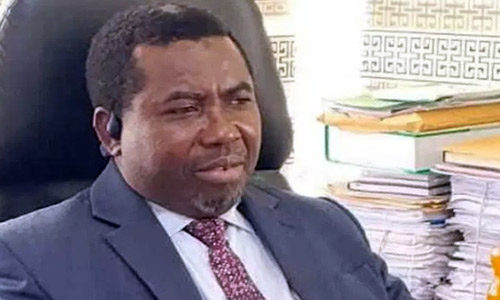
In a dramatic conclusion to a day of high political theatre, the Nigerian Senate on Thursday confirmed Professor Joash Ojo Amupitan, SAN, as the new Chairman of the Independent National Electoral Commission (INEC). The approval, by voice vote and without recorded dissent, crowns weeks of speculation and contestation surrounding the leadership of Nigeria’s electoral body.
The confirmation followed a strenuous screening session in the Senate chamber, where Amupitan was grilled by senators for about three hours. Questions ranged from his prior professional roles and claims of non-partisanship to the technology and logistics plans he intends to deploy. At one point, Senate President Godswill Akpabio attempted to limit further questioning on the Biometric Voter Accreditation System (BVAS) and the INEC Result Viewing (IReV) portal, but senators such as Solomon Adeola pushed back, insisting the nominee answer fully.
After the Committee of the Whole, Akpabio asked whether the confirmation was “a true reflection of the House,” and the ayes had it. He declared Amupitan confirmed, noting that security and law enforcement agencies—DSS, the police, and the National Security Adviser’s office—had cleared him, and that he had no criminal record. In his remarks, Akpabio urged Amupitan to fulfil “the expectations of all Nigerians” in ensuring that votes count.
In his address to the Senate, Amupitan pledged an inclusive, transparent, and technologically driven future for Nigeria’s elections. He vowed that “no voter will be disenfranchised” and floated the possibility of deploying drones to deliver sensitive election materials to remote or insecure areas. He also committed to aggressive voter education, the establishment of an Ethics & Compliance Committee within INEC, and collaboration with the National Assembly toward creating an Electoral Offences Commission.
Amupitan, a law professor at the University of Jos and a Senior Advocate of Nigeria (appointed SAN recently), had earlier denied serving as legal counsel for the All Progressives Congress (APC) in the 2023 election petition cases. He urged that court records and law reports be consulted to verify claims. He also told the Senate that he would audit INEC’s logistics and 2023 poll materials and review past practices.
His pathway to confirmation was paved by President Bola Tinubu’s formal nomination earlier this week. In a letter to the Senate, Tinubu cited Section 154(1) of the 1999 Constitution (as amended) as the basis for the appointment and asked for “expeditious consideration.” The nomination had earlier been endorsed by the National Council of State on October 9.
Ahead of the confirmation, opposition parties and civil society groups had flagged concerns that the Senate might shortcut due process. The Human Rights Writers Association of Nigeria (HURIWA), for instance, called the confirmation a “travesty,” accusing the Senate of rubber-stamping a partisan choice and bypassing meaningful oversight. Many pointed to Amupitan’s shared ethnicity with the President as a potential conflict of interest or influence.
But Amupitan also received support from within the Senate. Senator Seriake Dickson (PDP, Bayelsa West) publicly welcomed the nomination, pledging to vote in favor and to push for needed electoral reforms. Some northern youth and civil society groups likewise called for the swift confirmation, arguing that delaying the process could undercut preparation for upcoming elections.
Amupitan becomes the sixth substantive INEC chairman since Nigeria’s return to democracy in 1999. He succeeds Professor Mahmood Yakubu, whose decade-long tenure ended earlier this month, and interim leadership under May Agbamuche-Mbu, who served only briefly.
Observers see the confirmation as both an opportunity and a test. With the 2027 general elections looming, Amupitan’s success will largely depend on whether he can implement reforms that withstand political pressure, deliver free and credible polls, and build renewed confidence in Nigeria’s electoral system.










